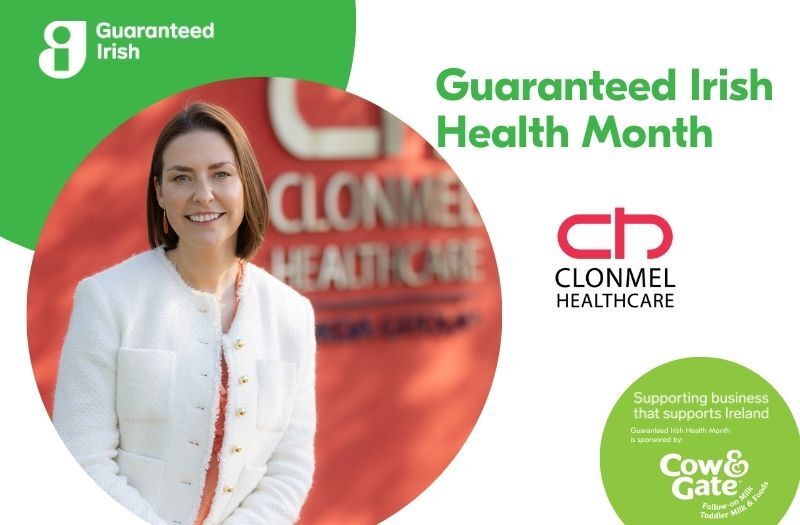As part of our Thought Leader Q&A Series, we sat down with Marah Curtin, Director of Client Engagement at Davy, ahead of our International Women's Day Event.
Could you give us an overview of your role as Director of Client Engagement at Davy?
I sit on our Product and Innovation team and am tasked with strategic planning and innovation in relation to how we engage our clients, enhancing the client experience and supporting our financial advisers in delivering on their commitments to our clients. Right now, I’m focused on developing an engagement program based on what Davy learned from the research we did into the behaviours, attitudes, needs, wants and preferences of women in Ireland when it comes to their money.
Much of my work, both in Davy and outside my day job is aimed at promoting the financial empowerment of women and the next generation, which has been a long-held passion of mine and is evident if you know me or follow me on social media and are familiar with my “passion projects” Cents for Kids and Femolutionist.
The need for more female leaders has never been greater. Why are there fewer women in leadership roles?
I think the underrepresentation of women in leadership is such a complex issue, but I personally believe it all stems from gender bias and a lack of cultural fit. Societal norms and cultural biases have traditionally associated leadership with male characteristics, such as strong, assertive, and dominant, leading to women being made to feel that they don’t “fit the mould”, which can deter them from pursuing leadership positions. The reality is that women can end up internalising these biases and allow self-doubt about their abilities as leaders to creep in. Like my good friend and mentor, Clodagh Hughes, likes to say, “it’s not a lack of confidence women have, it’s a lack of cultural fit.”
Frankly, I believe there are just as many women opting out as there are women missing out on opportunities for promotion. Biases and a lack of cultural fit can create a hostile environment for women, making it more difficult for us to succeed in leadership roles. It’s absolutely exhausting when you think about what women are up against in the workplace—we have the “likability penalty”, the “maternal wall”, the “glass ceiling”, the “double bind”, the “second shift”, the “tokenism effect”—just thinking about all of these things makes me want to go take a nap!
It’s well documented that the companies that boast a higher representation of women on their boards outperform the organisations that don’t. What defines female leadership?
While I believe it very much depends on the person, female leaders are generally very good communicators and tend to have a collaborative style of working, which can ultimately lead to more effective teamwork among the board. A diversity of perspectives and ideas also tends to produce more creative solutions and better decision-making as diverse boards are better equipped to make strategic decisions that take into account a range of perspectives and experiences.
Highly gender-diverse companies are more likely to have superior value creation. How can we work towards building a diverse and inclusive workforce that will ultimately yield higher revenue and boost employee performance?
Companies can start by placing more women in leadership positions. There’s plenty of research that indicates companies with more women in leadership positions are better at attracting and retaining top talent, particularly women, which in turn gives them that diversity they need for improved performance and innovation.
Building a more diverse and inclusive workforce requires a sustained effort and a real commitment to change. It’s not easy and the journey to a truly diverse and inclusive culture can be really challenging. Most people tend not to like change—particularly if they feel threatened by the idea of changing their behaviour or beliefs. There’s a quote that I think sums it up quite nicely, “Diversity feels like oppression when you’re so used to the privilege.”
From a male perspective, diversity initiatives can leave men feeling unfairly disadvantaged or that their contributions are being undervalued in the name of diversity. Being conscious of this and having compassion can help build bridges and lead to greater understanding and empathy for everyone. But at the same time, it’s important to recognise that compassion does not mean prioritising the needs of men over the needs of other individuals, groups or the greater good.
Irish businesses have made progress in achieving greater gender balance at board level in recent years. Representation of women on boards of the ISEQ20 now exceeds the 30% target for 2022 at 36%. How can we support women in leadership roles?
First, for anyone that doesn’t know, the ISEQ20 is an index of the top 20 Irish companies listed on the Irish Stock Exchange.
And yes, we have made good progress in terms of getting more women on the boards of top Irish companies, but only one woman holds a Chairperson role and as of November 2022, three of those listed companies still had all-male boards. There are also still a number of companies that only have one woman on their board and we all know that being the only woman can be a challenging and isolating experience and the social dynamics can make it difficult to have a meaningful impact on the company’s direction and strategy, so we need to keep pushing.
That said, I believe there are seven companies that have no women in the c-suite and many more where there is only one. In other words, there’s a lot more we can be doing to support women in leadership roles. Some of the things I see working includes providing mentorship and especially sponsorship opportunities and offering targeted leadership and development programs. And the one thing that I think can really move the dial is when D&I metrics are incorporated into performance evaluations as it sends a signal to managers that these issues are important.
International Women's Day (March 8) is a global day celebrating the social, economic, cultural, and political achievements of women. Who, in your opinion, are the top female leaders to follow in 2023?
We are absolutely spoiled for choice when it comes to female leaders that are making waves across Ireland. Sonya Lennon is making a real difference in the lives of women in Ireland through WorkEqual, which is a platform that provides businesses with tools and resources to help them close the gender pay gap and create more inclusive and equitable workplaces.
Sonya is also co-founder of LIFT Ireland, alongside Joanne Hession, who is the co-founder and CEO of LIFT. LIFT is a unique leadership program that is designed to help individuals and communities build their leadership skills and develop stronger, more meaningful relationships. The program is based on a set of core values and principles, including empathy, respect and self-awareness and aims to help develop the skills and mindset needed to lead with integrity and compassion. And heaven knows we need loads more of all of that if we want to begin to make strides toward gender justice.


